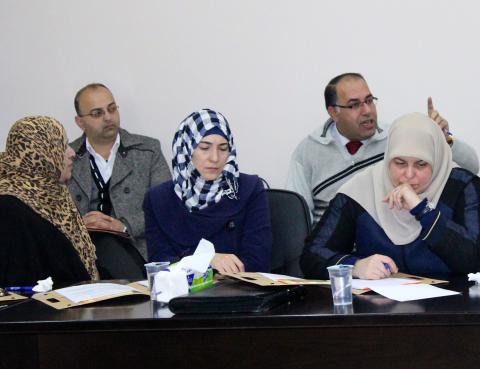
Open access – the immediate, online, free and unrestricted availability of research results – is a powerful solution to the barriers that researchers in developing and transition economy countries face in accessing and sharing critical research that can improve people’s lives.
In collaboration with our global network of partners, we have contributed substantially to open access (OA) in developing and transition economy countries. In 2016 - 2017, we’ll be taking stock of our progress and taking our OA programme to the next level.
Our key areas of focus will be OA policy; improving OA journals and OA repositories; embedding OA, open research data and open science in the workflows of young researchers, and promoting the use of reliable and valid open metrics for research assessment and evaluation.
Supporting development of effective, sustainable OA policies
We will continue to support OA policy development in all EIFL partner countries where we see an opportunity, through OA, to accelerate scientific research, technological progress and social wellbeing.
There are over 4,000 OA journals and over 850 OA repositories in EIFL partner countries, yet many research outputs are not openly available. Effective and sustainable OA policies are needed to mandate OA to all research outputs.
There are over 80 OA policies in EIFL partner countries. Many more institutions are discussing OA policies, but adoption and implementation is slow to happen.
EIFL will continue to work with universities, research organizations and research funders to ensure that OA policies that mandate OA to all research outputs are adopted. So that these policies are effective and sustainable, we will ensure that they are supported by management, faculty and students, and that they are integrated into institutional processes and culture.
We will also encourage alignment of OA policies across institutions and international borders. OA policy alignment facilitates the work of interdisciplinary and international research teams because they will not have to comply with multiple and / or divergent policies.
OA journals and repositories: making sure that they are doing alright
Many OA journals and repositories in EIFL partner countries were set up some time ago and are not able to respond to the current needs of researchers and research institutions.
In 2016 - 2017 we will work with EIFL OA country coordinators to conduct an audit of OA journals and OA repository developments in their countries.
Based on the outcomes of the audit, we will develop good practice recommendations for improving repositories in those countries, and share the recommendations in knowledge sharing activities like webinars and workshops. We will also draw on other international experience and examples to develop more general check-lists of up-to-date policy and infrastructure requirements for OA journals and OA repositories.
We’ve already launched our webinar programme - see expert tips for setting up and managing a DSpace repository from our joint webinar with the UK-based Institute for Development Studies (IDS).
Embedding OA, open research data and open science in researchers’ workflows
We would like to see more researchers practicing OA, open data sharing (making data free to use, reuse, and redistribute) and open science (making scientific research, data and other results and work flows available to all). We would also like to strengthen institutional training capacities in these topics.
To this end, we will facilitate OA, open research data and open science training for early career researchers, for example, by re-using FOSTER training materials and e-learning courses in standard training sessions for PhD students .
We will also support a series of train-the-trainers events in EIFL partner countries. The new trainers will conduct regular OA, open research data and open science training for early career researchers in their institutions.
Open metrics: new ways to gain and demonstrate visibility of research output
There is still a disconnect between OA policies and research assessment and evaluation policies in our partner countries. The disconnect arises when institutions advocate for OA publishing, but give preferences to research that is published in high impact factor journals ranked by Thomson Reuters Web of Science.
We want to encourage more OA policies that link depositing in OA repositories with promotion, tenure, or other forms of assessment and review. We also want more universities and research organizations to follow the principles of The San Francisco Declaration on Research Assessment (DORA), which recommends ways of improving the how output of scientific research is evaluated by funding agencies, academic institutions, and other parties.
We plan to collect good practice examples from EIFL partner countries on using open metrics for research assessment and evaluation, opening up what they measure and what is measured. We will also organize discussions on the benefits and limitations of different metrics (traditional and new) and collect recommendations on what is needed to have reliable and valid open metrics.
SHARE / PRINT









